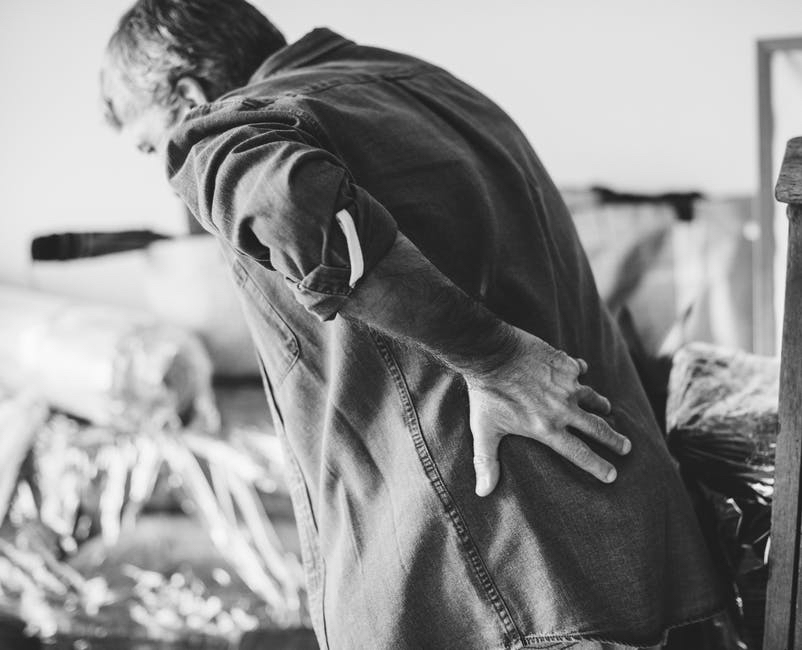When you wake up stiff or sore, the whole day can feel like a slog. Feeling tired and achy upon waking can be fantastically irritating, as well as uncomfortable. But figuring out the cause behind your waking soreness can be tricky.
Fortunately, there are a handful of potential culprits when it comes to morning aches and pains. If you’ve been wondering how to prevent waking up sore, you may want to keep reading.
Why Do I Wake Up Stiff?
Typically, the first thought after waking up with a stiff and sore neck or back is, “How the heck do I get rid of this pain and feel more comfortable?”
Once that question has been answered (typically by over-the-counter pain relievers), a second question arises. This is the question of causality. However, determine the cause behind your waking soreness can be challenging.
That’s because waking up with stiff joints and achy muscles can be caused by several things. In general, this issue occurs when individuals begin:
- Waking up before sunrise
- Sleeping on an uncomfortable mattress
- Using the wrong pillows
- Suffering from an illness
- Practicing poor lifestyle habits
Combating early-morning stiffness begins with recognizing these potential causes and doing everything in your power to prevent them. While you may not be able to permanently prevent illness or pre-dawn wakefulness, you can control other aspects.
1. It’s Dark Outside
Our bodies are quite peculiar, especially when it comes to sleep. While we are beginning to understand what happens to our brains and bodies while we’re sleeping, there’s still quite a lot of mystery surrounding the process of slumber.
For example, most people are born with a set circadian rhythm that follows a night/day cycle. This allows us to feel wakeful during the daylight hours and sleepy during the night. However, it can also conflict with our schedules.
Those who are forced to wake up early in the morning for long commutes or first shifts may recognize how challenging it is to stay awake before the sun has risen. This has everything to do with the natural circadian cycle.
If you’re waking up before the dawn, your body may not be reducing natural inflammation for the first several hours of your day.
2. Your Mattress Isn’t Quite Right
It’s well-known that a saggy mattress can be terrible for your back. However, an overly firm mattress may also cause discomfort and chronic pain. Additionally, different sleeping styles require specific mattress firmnesses.
Finding the right mattress for your body weight, body size, and sleeping style often requires a good deal of consideration and patience. However, once you’ve found your optimal option, you could enjoy more than a decade of improved sleep.
Resting on a mattress that isn’t right for you is a surefire way to wake up feeling stiff and sore. Naturally, lumpy or poorly-placed pillows can also contribute to discomfort upon waking.
3. It’s Time to Replace the Pillows
As with mattresses, not all pillows provide the same amount of support. Additionally, it’s crucial to replace saggy, lumpy, or aged pillows to avoid chronic discomfort. The average pillow should be replaced every one or two years.
If you’re a side sleeper, you may benefit from incorporating body pillows into your bedding arrangement. A memory foam knee pillow, for example, can help relieve pressure from the knees during rest.
This could help sleepers enjoy a more flexible and pain-free awakening. Individuals with arthritis may have the most to gain by incorporating supportive pillows into their nighttime routine.
4. You’re Not Feeling Well
Certain medical conditions or illnesses can contribute to an achy, stiff body. Think back to the last time you had a cold or the flu. You likely woke up one day feeling like you’d been hit by a truck or beaten up in your sleep.
When you fall ill, the body’s immune system responds by deploying white blood cells to the infected or damaged area. When these cells reach their destination, they emit signals that call for “backup”, increasing blood flow to affected areas.
While this response is crucial for proper healing, it does have at least one unpleasant side effect: tissue inflammation. Tissues may become swollen or red while in the process of healing. This swelling can lead to sensations of stiffness or mild, achy pain.
5. You’re Not Living a Healthy Lifestyle
Believe it or not, poor lifestyle habits can also cause your joints to feel stiff in the morning. Heavy drinking, tobacco usage, and low-nutrient diets may all cause significant damage to a person’s body over time.
Heart disease, obesity, and diabetes are all associated with these poor lifestyle habits. When your cardiovascular system begins to falter, your entire body is affected. A lack of proper blood flow is bound to make you feel heavy and stiff.
Additionally, smoking and binge drinking can contribute to overall poor health, causing you to feel sluggish and uncomfortable upon waking. As such, it’s crucial to enjoy regular exercise, avoid toxic habits, and eat plenty of fresh fruits and veggies.
Don’t Wake Up Feeling Achy Ever Again
There are a handful of reasons why you might wake up stiff. Your natural circadian rhythm to be slightly offset, or you may also be sleeping on an uncomfortable mattress.
You might also be using the wrong kinds of pillows. Poor health or recent infections can also contribute to soreness upon waking. Unhealthy lifestyle habits, like smoking or malnutrition, may also cause morning aches and pains.
Addressing each of these potential issues is key to achieving a great night’s rest. Did you enjoy this article? Be sure sure to check out our related health articles now!
